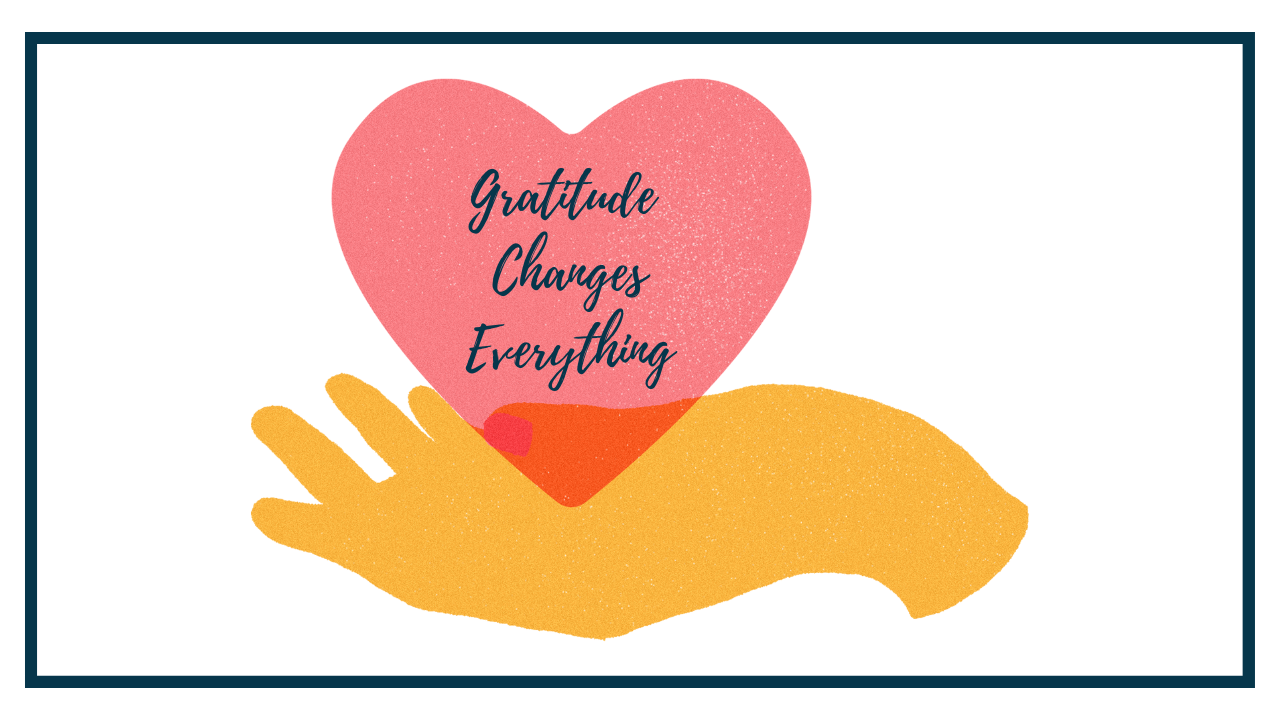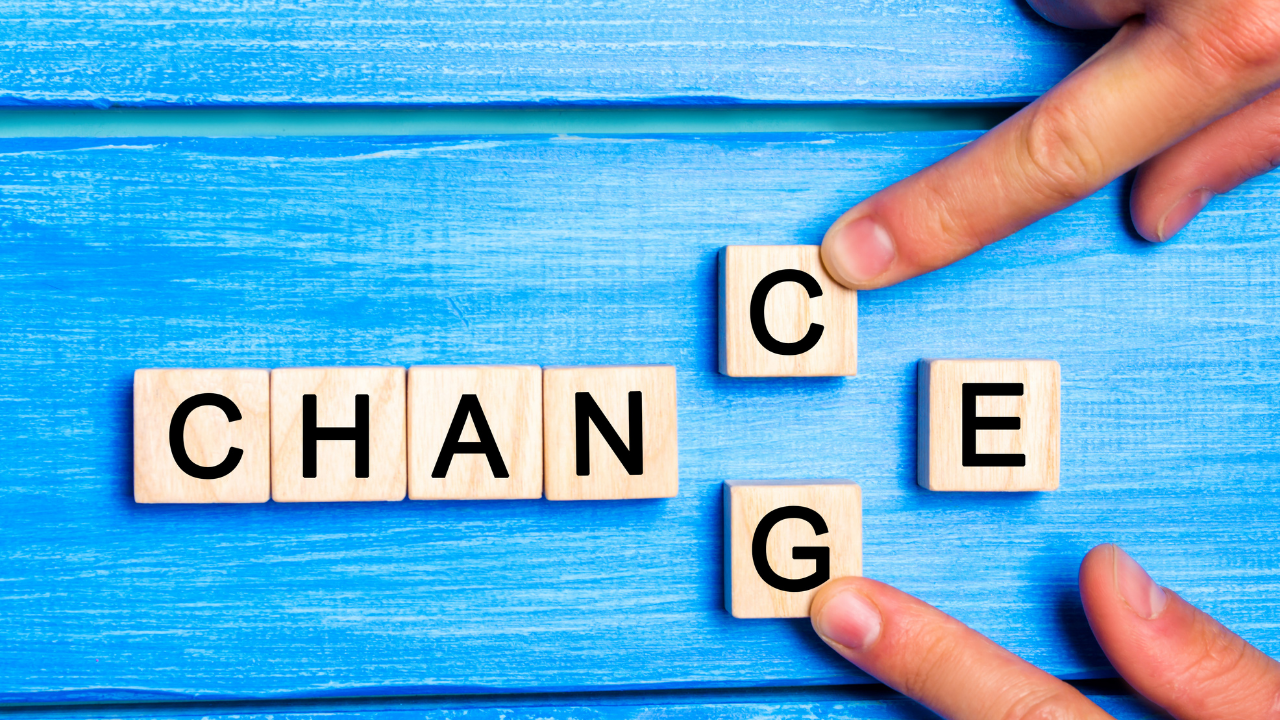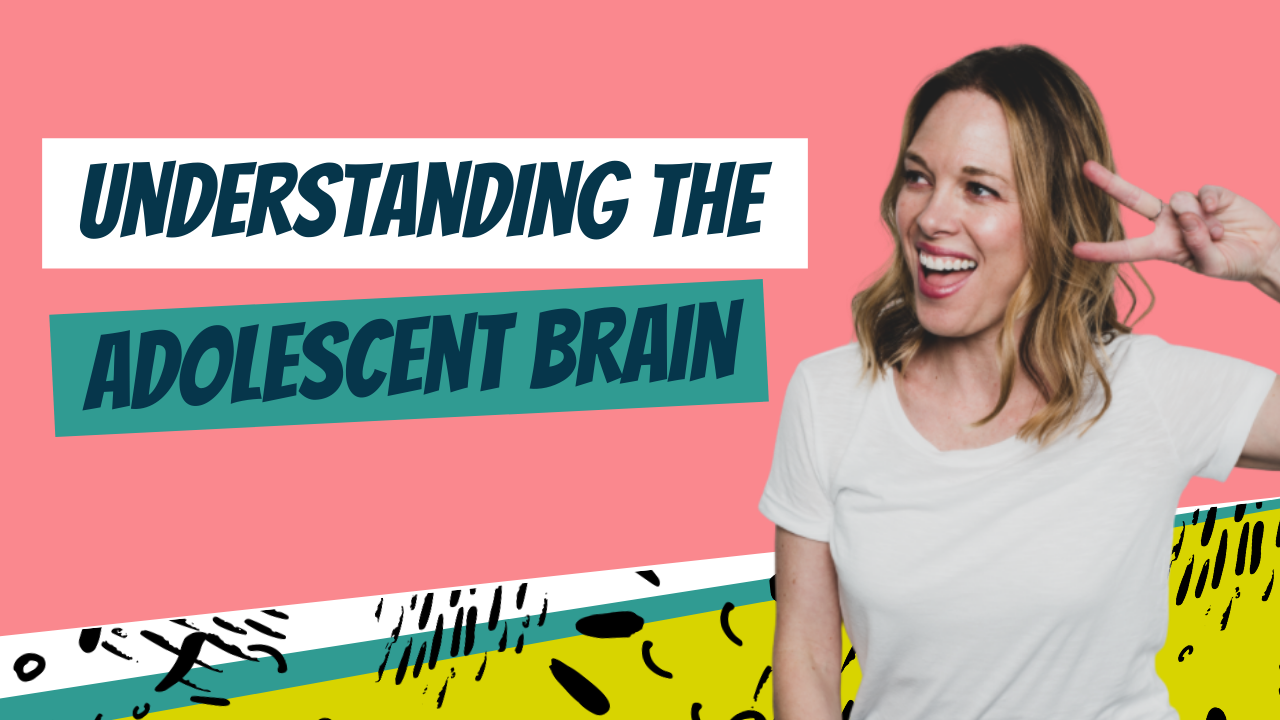The Secret to Gratitude in Middle School - What Parents Should Know, but Probably Don't

Gratitude. It’s the season to express it and you know it matters to life, mental health, and feeling successful, but why, exactly? And, why is it so important to your middle schooler?
It has long been known that gratitude is essential to a happy life. An idea rooted in many religions and philosophies, gratitude's origins come from primate social behavior. We all seem to have an intrinsic understanding of what gratitude is, but it's frequently expressed to other people and/or interwoven into manners. Parents, how often are you telling your kids to say, "thank you," or to write thank you cards after birthdays. Or, how about helping your kids to understand that their circumstances are sometimes more privileged than others (my grandmother used to tell me to finish my dinner because there was a starving child somewhere). I got so good at saying, "thank you," as a kid that I would even say it when my mom handed me the over-stuffed trash bag to take out at the end of the night.
But being able to say "thank you" at the appropriate times isn't the whole story of gratitude.
Through the wonders of modern science, we have been able to uncover some of the secrets and benefits of gratitude, such as increased happiness, better sleep quality, self-regulation, healthier relationships, and improved symptoms of anxiety and depression. Gratitude is an important practice and can determine the quality of our lives and overall life satisfaction. While many of you understand the concepts of gratitude, the practice of it is learned, especially from our parents, peers, and society.
And, if you're reading this then you are in the right place at the right time!
The real prime time to teach and absorb the skill is during adolescence. Middle school is when your kid's brain is going through so many developmental changes; they are discovering their own beliefs, opinions, and moral judgments as it relates to their identity and their ideas of the world. Consider gratitude as the ultimate floodlight of the good things happening for you and your adolescent through the experimental, and high-stakes teen tunnel. It's something you can return to again and again when you need clarity, calm, and connection.
So, here is all you need to know about the secrets and science of gratitude, and most of all why it matters for your middle schooler. Read on to find out about:
-
The benefits of gratitude
-
What science tells us about gratitude
-
The four parts of gratitude
-
Ideas to guide your middle schooler to a gratitude practice
Simply put, gratitude is the quality of being thankful; the readiness to show appreciation and show kindness. Quality and readiness are keywords because they point to the true mechanisms of gratitude. It's very easy to feel thankful, but gratitude takes it a step above thankfulness with a more meaningful quality to the feeling. Like any practice, the more you do it the stronger the benefits. The more consistently you can practice gratitude, the more likely you are to feel it in the future. That said, I recommend gratitude become a practice to prioritize, not perfect.
Here are some of the benefits you and your kid can expect when you make gratitude a priority:
-
Social and personal relationship benefits
-
Through practicing gratitude you can begin to feel a better sense of connection to the people in your life as well as a big picture perspective of humanity as a whole. Gratitude gives you a new understanding of the human experience and appreciating life simply because it is.
-
Increased pro-social behavior and reciprocal behavior. This means you are more likely to engage in behaviors that are beneficial to others as well as yourself and are more likely to "return the favor".
-
The level of gratitude you feel predicts life satisfaction more than personality traits. Read that line again. Who you are doesn't matter as much as the amount of gratitude you feel on a daily basis. Imagine knowing and feeling this at their age?!
-
Physical health benefits
-
Better sleep quality. Gratitude helps you to get to a state of calm and presence.
-
Increased resilience to health problems and life challenges.
-
Lower levels of depression and anxiety (this is a big one for middle schooler's if you want more info check out EA Podcast episode #22).
-
Mind-body connection
-
The mind can influence the physiological state of the body just as the body's physiological changes can affect the state of the mind. Gratitude can help you return to a state of presence, which calms your body and your mind.
Only until recently, we didn't really know why practicing gratitude had so many obvious benefits. Because of all the attention gratitude has been getting over the last few years, scientists thought, "Okay there's gotta be something to it." Now, with modern-day technology science can confirm that in fact there is something to gratitude. The full picture is still being pieced together, but we know a lot more about HOW gratitude works in the brain and the body.
In one study, researchers who look at the relationship between emotion, health, and performance at the USC Performance Science Institute used fMRI technology to observe the brain's activity when participants visualized scenarios where they felt gratitude. They found that when participants felt gratitude they had increased activity in their medial prefrontal cortex. I know, science jargon! Here is a visual of the area that lights up when people feel gratitude:
The amazing thing about this area of the brain is that it's also the CEO of the brain. It's an area that allows us to perform executive functioning, feel empathy, moral reasoning, social cognition, and feelings of ease. This area of the brain activates when we feel calm, connected, and clear! And, that's not all. It's also the area that is strongly connected to our ability to self-regulate and relieve stress. Now, here is the cherry on top: the pre-frontal cortex is the area of the brain that is most rapidly developing in adolescence.
You want to encourage the neural connections happening here with healthy practices! Adolescence is the perfect time to be practicing gratitude because as your middle schooler's brain is developing they can wire themselves towards a more positive, healthy, and fulfilling life. Think of it as building a lattice that a vine can grow upon. You want to build a strong and tall scaffolding before the vine grows so that it will always have a supportive structure for it to thrive. Of course, you can build the lattice later in the vine's life, but it will be harder to re-train the vine to grow that way compared to starting off with a clear path.
By teaching your adolescent gratitude now, their pre-frontal cortex will be given the right kind of scaffolding it needs to be primed for stronger self-regulation, morality, empathy, satisfaction, and happiness. And science suggests that the benefits of gratitude have long-lasting effects on the brain and the body. So these skills and benefits could last your child's lifetime. This is extremely important in a day and age when depression and anxiety are at an all-time high. You can listen to the EA Podcast for more information on how gratitude relates to depression and anxiety in adolescents.
Now that you know a few of the secrets of gratitude there are some things you can do as a parent that will help guide your middle schooler (and yourself) towards a more intentional gratitude practice. Making it a part of a normal routine, expressing it often, and thinking about it in different ways will guarantee gratitude becomes a part of your life.
The Raising Grateful Children Project at UNC Chapelhill found four components to how people experience gratitude:
-
What you notice
-
How often are your thoughts about something positive?
-
What do you tend to notice in your environment?
-
Does it usually sound like a complaint or an observation?
-
How you feel
-
What emotions are most present for you on a daily basis?
-
How do your emotions affect the way you show up for your kid or how they show up for you?
-
How do you feel when you are grateful?
-
How you think
-
What thoughts do you have around gratitude?
-
Is it something you consciously think about?
-
What you do
-
What do you DO that expresses gratitude?
-
How can your behavior change based on the gratitude you feel?
As I mentioned before, children understand gratitude based on their parent's behavior and most parents are great at teaching gratitude through behaviors that are considered polite (saying "thank you"). This means that gratitude through what kids DO and what they NOTICE is most common. But I think it's important to guide your middle schooler to how they FEEL and what they THINK about gratitude. This allows them to experience gratitude in more specific and impactful ways.
Also, connecting gratitude to thoughts and feelings is more likely to help create a habit out of the practice. Emotions run high during adolescence, so connecting things to emotional experiences as much as possible is a good way to solidify learning.
Ideas to guide your middle schooler towards feeling and thinking about gratitude:
-
Ask questions:
-
What do you notice around you? What's something that makes you happy that you can see, hear, touch right now?
-
What do you have in your life right now that you're grateful for? Is that thing something you were born with or given? If it's given, who gave it to you and how important is that person in your life?
-
What do you find most important in your life right now?
-
What are some things you notice when you are feeling grateful?
-
Model the behavior:
-
Say things out loud that you notice you are grateful for
-
Express when you are feeling grateful
-
Show them what you do when you are grateful, reciprocate the action/thing that made you feel that way.
-
Tell them what you are thinking when you receive a gift, "That is so nice *blank* did that for me, I'm going to write them a really beautiful card."
-
Engage in things in the community that gives back, even in small ways. Buying a Thanksgiving meal for someone else at the grocery store, picking up trash that you see on your walk
-
Create a ritual:
-
Whenever you change environments, from school to home, going to the park, etc. Notice one thing that makes you grateful. It could be a feeling that is present for you in that moment or something you can physically notice.
-
Before bed, share something that made you grateful that day. Or do this with your family at the dinner table
-
Create a jar or bowl where throughout the week your family can write notes of something that made them feel grateful and read them out loud at the end of the week
The main thing is to talk about gratitude and express it as much as you can. Normalize the experience of gratitude and make it a part of your daily life, even in small ways. Make the practice work for you and your family and your beliefs. There is no "right way" to do it. And you won't always feel grateful, you're not supposed to. As long as you make an effort to return to a place of gratitude and kindness, that is more than enough to boost overall happiness and wellness. And you'll find that it won't just be your middle schooler experiencing the benefits of this kind of practice!
References
Glenn Fox, & Fox, G. F. G. (n.d.). What can the brain reveal about gratitude? Greater Good. Retrieved November 22, 2021, from https://greatergood.berkeley.edu/article/item/what_can_the_brain_reveal_about_gratitude?utm_source=Greater%2BGood%2BScience%2BCenter&utm_campaign=a1fcac6170-EMAIL_CAMPAIGN_Dedicated_November_2021&utm_medium=email&utm_term=0_5ae73e326e-a1fcac6170-73213471.
Henning, M., Fox, G. R., Kaplan, J., Damasio, H., & Damasio, A. (1AD, January 1). A potential role for mu-opioids in mediating the positive effects of gratitude. Frontiers. Retrieved November 22, 2021, from https://www.frontiersin.org/articles/10.3389/fpsyg.2017.00868/full.
Hussong, A., & Andrea Hussong, Andrea Hussong is director of the Center for Developmental Science and a professor of psychology at the University of North Carolina at Chapel Hill. She studies how interactions between parents and kids can foster gratitude. (2017). What parents neglect to teach about gratitude. Greater Good. Retrieved November 22, 2021, from https://greatergood.berkeley.edu/article/item/what_parents_neglect_to_teach_about_gratitude?utm_source=Greater%2BGood%2BScience%2BCenter&utm_campaign=a1fcac6170-EMAIL_CAMPAIGN_Dedicated_November_2021&utm_medium=email&utm_term=0_5ae73e326e-a1fcac6170-73213471.
Kini, P., Wong, J., McInnis, S., Gabana, N., & Brown, J. W. (2016). The effects of gratitude expression on neural activity. NeuroImage, 128, 1–10. https://doi.org/10.1016/j.neuroimage.2015.12.040
Ready to Transform Your Parenting?
Grab my done-for-you Teenage Guide and start seeing real changes today! Click below to get yours now.
Don't Parent Alone—Join My VIP Email List!
Get exclusive parenting tips, free resources, and special updates straight to your inbox. No fluff—just real, actionable advice to help you navigate parenting with confidence!
By subscribing, you agree to receive ongoing updates




